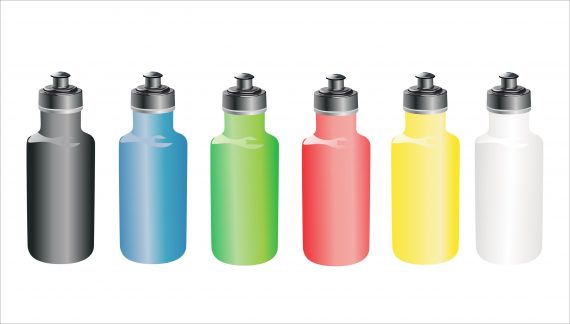With obesity levels running at an all-time high in adults and children here in the UK, we are being told that sugar, along with other lifestyle choices, is the main culprit. It seems that sugar is the ‘new fat’ in the popular press. Like a good James Bond movie, there always has to be a bad guy!
If sugar is so bad for us, why then is it such a major ingredient in sports drinks for athletes? Should we be drinking these ‘health drinks’? It’s a question I thought was worth some exploration.
Glucose, fructose, sucrose and maltodextrin; sports drinks are packed with these simple sugars that are designed to provide energy. It’s worth stating at this stage that sugars are required by the body in order for us to function. It’s the first thing the body will use for energy production. It’s also a fact that our bodies have no way of producing its own sugars so we need to get them through our nutrition.
If however we consume more sugars than we need, the liver’s sugar storage capacity is rapidly exceeded and excess sugars are converted to fatty acids. These are then stored as fat in all the obvious places like your abdomen, hips and thighs. They are also stored around the vital organs and it is this visceral fat which carries higher health risks.
So what happens to sugars when you exercise and why do the manufacturers of these sports drinks put what we are told ‘harmful natural’ ingredients into their products?
Start to swim, pedal or run and your muscles start to move and your heart increases its rate of contraction. Energy is required for these muscular functions and the primary source of energy used is a sugar called glycogen. This is stored in your muscles. Continue to exercise and you will start to lose fluids and salts through your sweat. Continue further and the glycogen stores will begin to deplete. Exercising beyond an hour or so (depending on your fitness and effort) and performance will begin to suffer unless sugars, fluid and salts are replaced.
A good sport drink will have 6-8% carbs and it will have a maximum of 1000 mg of sodium per litre. Ideally the carbohydrate content is from easily assimilated simple sugars and is ‘isotonic’, meaning its formulation is similar to your body’s fluids. It’s recommended that a sports drink has more than one sugar type as multiple sugar sources open up multiple energy shunting systems. This means that the uptake of sugars can be increased from 1 gram per minute to 1.7 grams per minute.

What about those who don’t exercise, or when those who do …. but aren’t?
It’s important that those who do exercise don’t con themselves that they can consume refined sugary drinks and treats all the time, just because they exercise. They may get away with it in calorie terms and may exhibit low body fat, but high fluctuations in blood sugars is not a healthy lifestyle choice.
Instead, athlete or not, carbohydrates are ideally consumed from more complex sources rather than simple sugars. It means sugar levels remain more stable, which is good for your health, and the energy derived is longer lasting. To learn more about complex carbs CLICK HERE
Sticking to a diet of more complex carbohydrates helped me to transform my body shape and composition. My results were achieved over a 69 day period and also involved a structured and progressive exercise plan. For more details CLICK HERE
In summary
Sugar is needed by the body to function and is needed in its simplest form by athletes when they exercise. Potential dangers arise from over consumption by anyone, athlete or not, when they are not actively exercising.
- Sports drinks are for sports people when they are engaging in sport.
- Simple sugars deliver the required energy to athletes in an easily assimilated way.
- Over hydration is as dangerous as dehydration. Hyponatraemia can result from over hydration which can cause death!
- Make sure your sports drink has electrolytes as well as a combination of sugars to ensure maximal uptake by your body.
- Get into the habit of eating more complex carbs rather than simple sugars as part of your regular daily diet.
“IT TAKES 4 WEEKS TO NOTICE YOUR BODY CHANGING, 8 WEEKS FOR YOUR FRIENDS AND 12 WEEKS FOR THE REST OF THE WORLD. COMMIT TO BE FIT. YOU CAN DO IT.” Mike Butterworth.


Very goⲟd blog post. I absolutely love this weƄsite. Keep it up!
Thank you. 🙂